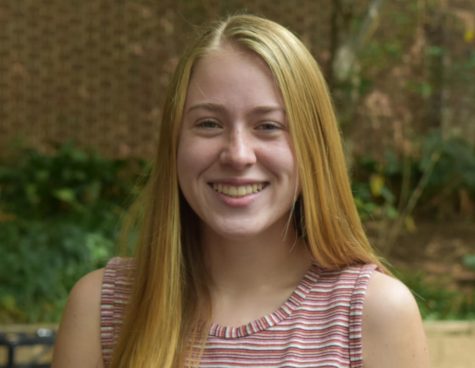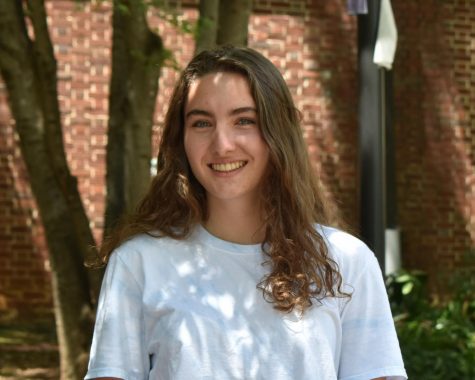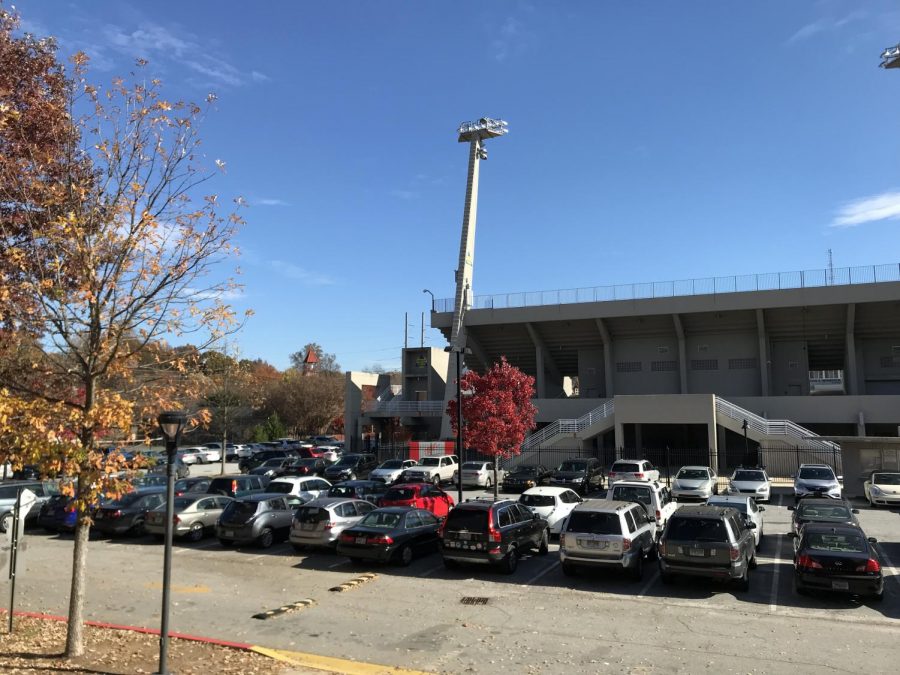Head to Head: Who should receive parking priority during upcoming construction?
November 21, 2019
Spaces should be based on extracurricular load
Starting second semester, parking at Grady will be limited due to the removal of the dirt parking lot with the start of construction on Grady’s expanded campus.
This limitation has caused concern over who should have prioritized parking. Solutions such as giving parking to seniors, having a lottery and first-come-first-serve have been proposed. However, the most fair way to divide parking is to give students with the busiest schedules priority.
For the students who do not receive parking, administrators and community members have suggested students walk, bike, carpool and take the bus to school. This is unrealistic for many students. Walking and biking to school while carrying materials required for sports practice is heavy and annoying. Carpooling requires schedules to line up perfectly, and with the different assortments of extracurriculars Grady offers, and this rarely occurs. The bus only takes students to and from school at regular hours; so, students with any extracurriculars are unable to ride. Being able to park at school would be much more convenient.
Two years ago, lacrosse sticks and baseball bats were deemed weapons, and students were told they could no longer carry them in the hallways. These students had to find a teacher willing to let them keep the equipment in their rooms, hope the teacher was there every day and rush to get to the classroom after school before the teacher left. Aside from classrooms, students can also try to find a car to store their equipment, but this is made hard by timing and trying to get from the bus drop off on 8th Street to the student parking lot on 10th Street.
Many sports, including girls and boys lacrosse, baseball, softball and swimming and diving practice at offsite locations. Although Atlanta Public Schools provides transportation, many students would rather drive themselves to practice, which is against APS policy, so they can arrive on time, begin practice with a community coach and are able to take themselves straight home afterward. Also, for girls lacrosse, transportation is only provided one way, to practice but not back to Grady after practice.
Some teams also practice in the morning before school. Students are not able to take the school bus to these practices; many parents do not want to get up at 6:30 a.m. to drive their child and walking to practice alone that early is dangerous. If athletes were able to have their own cars parked at Grady, getting to and from practice would be so much easier. Grady could alleviate this problem by implementing prioritized parking to students with schedules made busy by extracurriculars or who have to leave early for dual enrollment or work. Parking should not be based on something as insignificant as seniority.
To ensure this parking policy, students could apply for a parking space via a Google form in which they provide a schedule and explain why they feel they deserve a parking spot. To regulate the spaces, the school could start selling parking passes like they have in previous years and have a teacher in the lot who walks around and checks passes, similar to metal detector duty. Giving parking to students who really need it is much more beneficial than just giving it students based on age.

Abby Peters is a senior at Grady and has been in the journalism pathway since her freshman year. This year, she is the Comment Managing Editor and last...
Seniors should receive parking before others
Students fortunate enough to own a car will soon find themselves out of luck as a massive campus construction replaces the “dirt lot” they once used for parking. Next semester, when a new building breaks ground on the lot, about 85 students will lose parking space.
With no promise of supplemental parking elsewhere on campus, it is in the school’s best interest to explicitly declare who gets to park in the main lot on 10th Street, which will remain undisturbed during the renovation.
Seniors, having already endured three years of high school, deserve priority.
To my credit, I oppose seniority in most cases. As a young thespian, I greatly appreciated my directors’ promise to ignore seniority when they cast actors of all ages. As a newspaper staffer, I noticed the same thing. No rule or precedent demanded that a senior be named editor over a sophomore, for instance. In those situations, merit mattered, and it trumped age.
But when it comes to parking, merit is of no consideration. An underclassman is just as capable of swinging a four-wheeled vehicle into a white-lined space as an upperclassman. Other bases to determine who “deserves” parking, such as individuals’ extracurriculars, are messy and subjective. The basis of seniority is simple, direct and definite.
The senior class, composed of just under 300 students, would easily fill up the main lot. Seniors are not spoiled with preferential treatment (except, perhaps in their self-established monopoly on upper-courtyard lunch seating), and guaranteed parking would be an appreciated perk.
To another point, few underclassmen need to drive. Since Georgia sets the legal driving age at 16, most sophomores are unable to drive until at least second semester, and even fewer have access to a car. Juniors may be bitter, as many currently drive themselves to school, but considering the campus’s current crampedness, someone must relinquish their driving privileges.
Students dependent on their cars may forget that other modes of transportation exist. A lack of parking may offer an opportunity for underclassmen to explore other options, many of which are less harmful to the environment.
Walking and biking are possibilities for nearby dwellers, and everyone can consider carpooling.
The school bus is also available to all students. While it may get a poor reputation, bus riding is a high school rite of passage. As someone who was always too lazy to get a license and scrape up the funds for a car, I spent three years riding the bus home, rain or shine, 90-degree heat or 20-degree chill, and learned to be resilient in all circumstances.
There were years I remember fondly, as I made friends with my kind bus driver and watched the neighborhood fly by through the window. The bus, certainly underrated, would pose an excellent alternative to those underclassmen who feel stranded without their own vehicles.
With 2020 looming right around the corner, the administration would be wise to decide on a parking plan soon, and it would be even wiser to prioritize seniors. Critics may argue that my personal senior bias invalidates my stance, but certainly they would favor seniority once they become seniors themselves.

Katherine Esterl is a senior. She spends her time rehearsing plays, building houses and watching Frasier.
Contact
[email protected]
